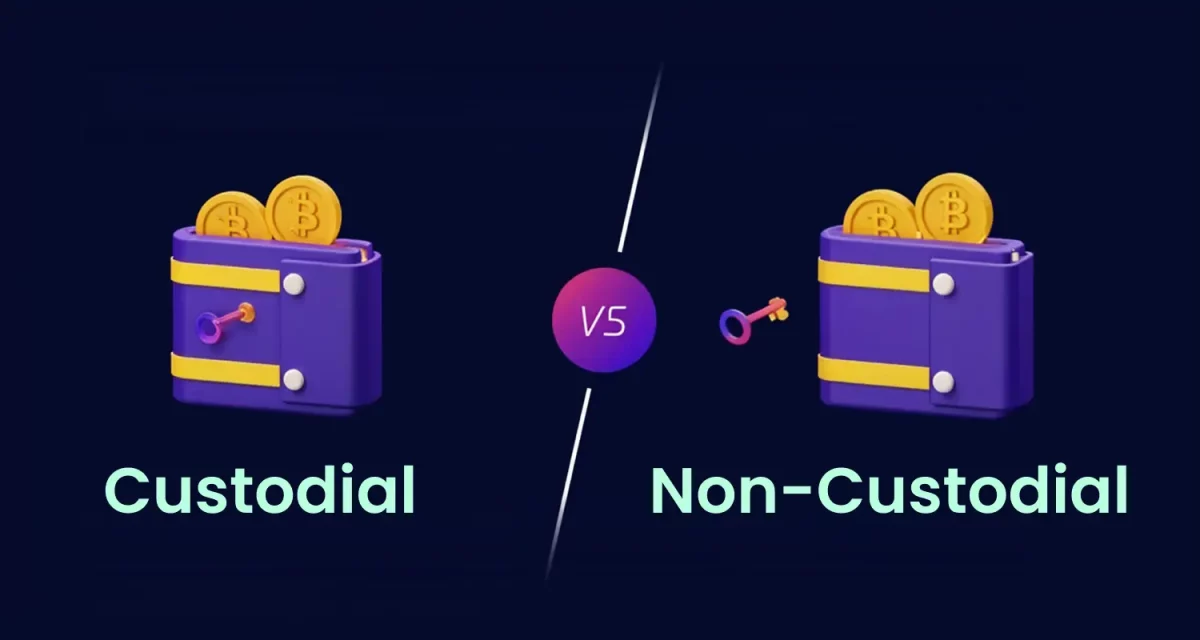
The world of digital money is growing fast, with tons of cash flowing through it every day. But if you’re thinking about creating your own digital currency or an app to store it, you’re probably wondering: How much does it cost to create a cryptocurrency wallet app?
It’s easy to focus on the cost of designing the app itself, but there’s a lot more to it than that. Things like building the system, keeping it secure, and following the rules all cost money too. If you don’t figure these costs out correctly, you could end up spending way more than you planned.
This guide will make it easy to understand the costs of creating your own digital currency or wallet app. We’ll break down the costs step-by-step, so you can make smart choices and build your dream project.
1. What impacts crypto wallet app development costs?
Developing a cryptocurrency wallet app involves many factors that can significantly influence its cost. Here’s a simpler breakdown of the key things to consider, especially when working with a team outside your company:
1.1. Basic, advanced, or unique features
Things like sending and receiving crypto, viewing transaction history, and checking your balance are essential and usually less expensive to build.
More complex features, such as supporting multiple cryptocurrencies, staking, DeFi integration, or extra security features will increase the cost.
If you want your app to have special features that no one else has, or a really custom design, it will take more time and money to build.
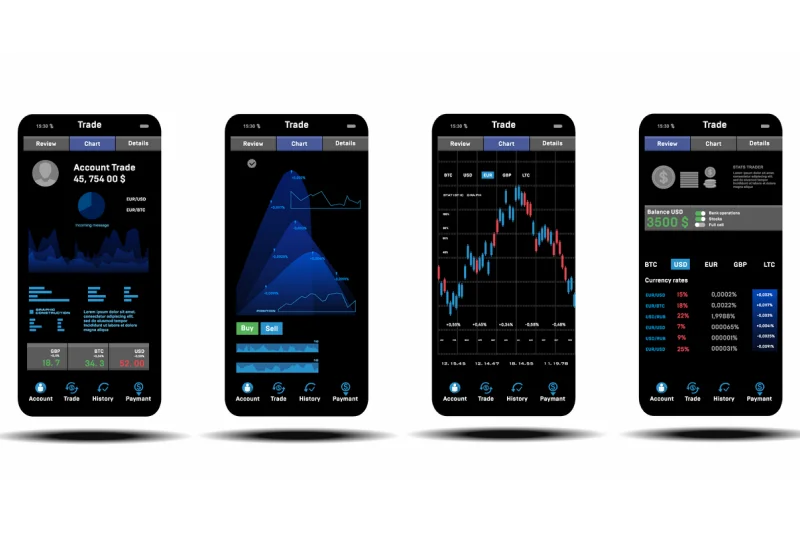
1.2. Platform and technology choice
Building the app for iPhones, Android phones, or both will affect the cost because they have different requirements. If you want a website version of your wallet along with the phone apps, that will add to the cost.
The programming languages, frameworks, and tools the developers use can make a difference in how long it takes and how much it costs. Using tools that work across different types of phones (like React Native or Flutter) can be cheaper than building separate apps for each.
Don’t forget about the cost of servers, databases, and cloud services that make your wallet app work behind the scenes.
1.3. Security features
It’s really important to have strong security features like encryption, multi-factor authentication, and secure ways to manage keys, but these can add to the cost. Having experts check your app for security problems is also important, but it costs extra.
1.4. UX/UI design
A well-designed app that’s easy to use is crucial. The more complex the design, the more it will cost.
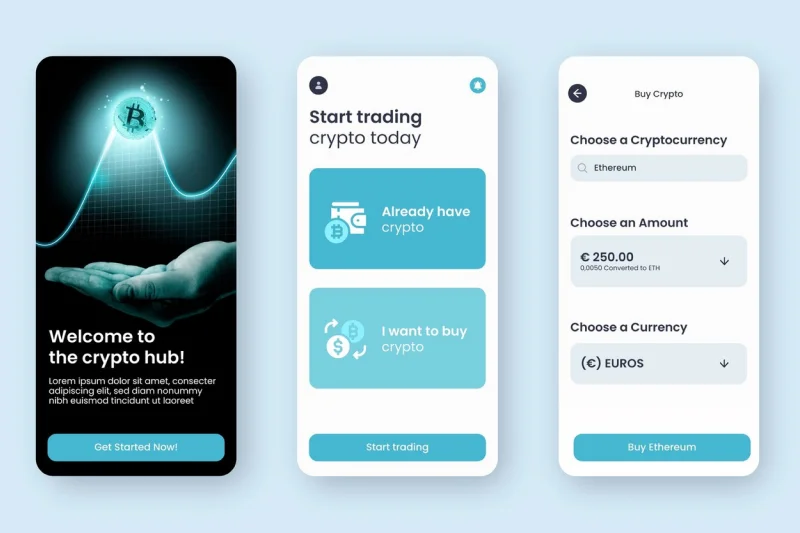
1.5. Development team and location
Hiring experienced blockchain and app developers is important, but they usually charge more. A skilled team can get the job done faster and better.
Where your development team is located can make a big difference in cost. Outsourcing to places with lower costs, like Vietnam, can be more budget-friendly.
The number of people working on the project will also affect the cost. More complex projects need bigger teams.
Rushing the project will usually make it more expensive because developers might have to work overtime.
Looking for a Tech Partner Who Delivers Real Results?
We provide tailored IT solutions designed to fuel your success. Let`s map out a winning strategy. Starting with a free consultation.
Connect with an ExpertRead more >>> How to Choose a Software Development Company?
1.6. Testing
It’s crucial to test the app carefully to find and fix any problems. The more testing you do, the more it will cost. Having a dedicated team just for testing can help ensure a high-quality app, but it will add to the cost.
By carefully considering all of these things and working closely with your development team, you can manage the cost of creating a cryptocurrency wallet app and get a great product.
If you’re also interested in creating a cryptocurrency itself, keep reading our in-depth guide on how much does it cost to create a cryptocurrency for a complete breakdown of those expenses.
Read more >>> How to Create a Blockchain: Build Your Own Secure Network Today!
2. Must-have features for a secure and user-friendly crypto wallet app
Want to build a crypto wallet app that people love to use? Here are the essential features you need:
Private key protection
Keeping users’ private keys safe is super important. Use strong methods like mnemonic phrases, hardware security modules (HSMs), and multi-signature authentication to prevent unauthorized access.
Multi-factor authentication (MFA)
Add an extra layer of security by asking users to verify their identity in multiple ways (like a password, email, or an authenticator app).
Biometric authentication
Let users unlock their wallets with their fingerprint or face for quick and easy access.

Encryption
Scramble all sensitive data in the app so it’s unreadable to hackers.
Automatic logout
Log users out automatically after a period of inactivity to protect their accounts if they lose their phone.
Transaction history
Allow users to easily see their past transactions.
Portfolio tracking
Show users their crypto holdings and how much they’re worth in real-time.
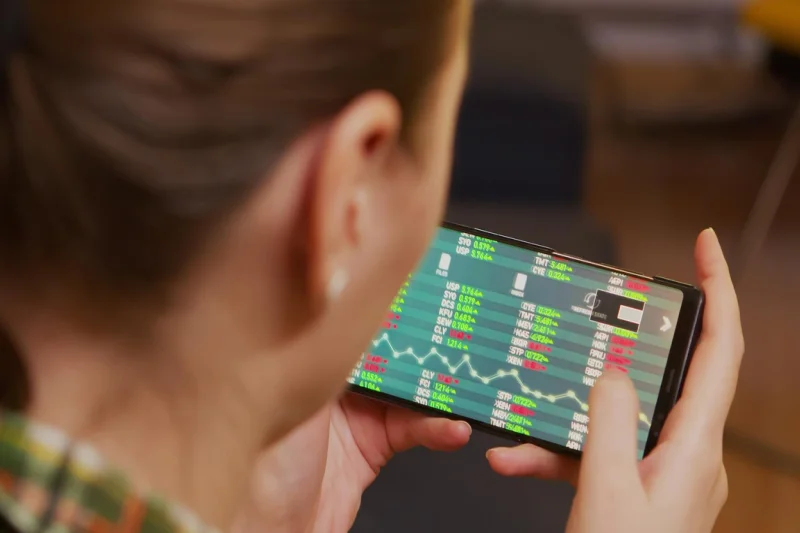
QR code scanner
Include a scanner so users can quickly send crypto to others by scanning their QR codes.
Multi-currency support
Support a wide range of cryptocurrencies (like Bitcoin, Ethereum, and popular altcoins) so users can manage all their digital assets in one place.
Token standards
Make sure the wallet is compatible with different token standards (like ERC-20, BEP-20) so users can manage a variety of tokens.
Exchange integration
Allow users to buy and sell crypto directly within the wallet.
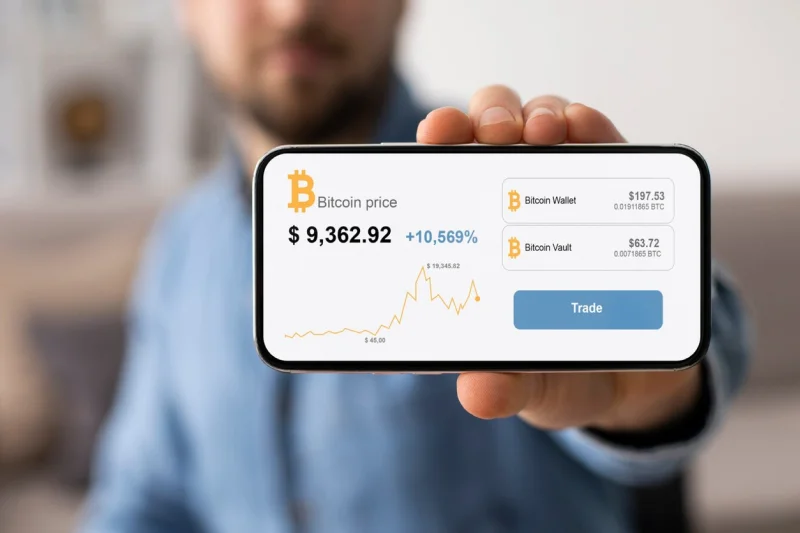
Decentralized finance (DeFi) integration
Give users access to DeFi protocols and services like lending and borrowing.
Staking and rewards
Let users earn rewards by staking their crypto.
Push notifications
Send real-time notifications about transactions, price alerts, and security updates.
Cross-platform compatibility
Make sure the app works seamlessly on different platforms (iOS, Android, and web) so more people can use it.
By including these features and focusing on security and user experience, you can create a cryptocurrency wallet app that attracts and keeps users in the competitive crypto world.
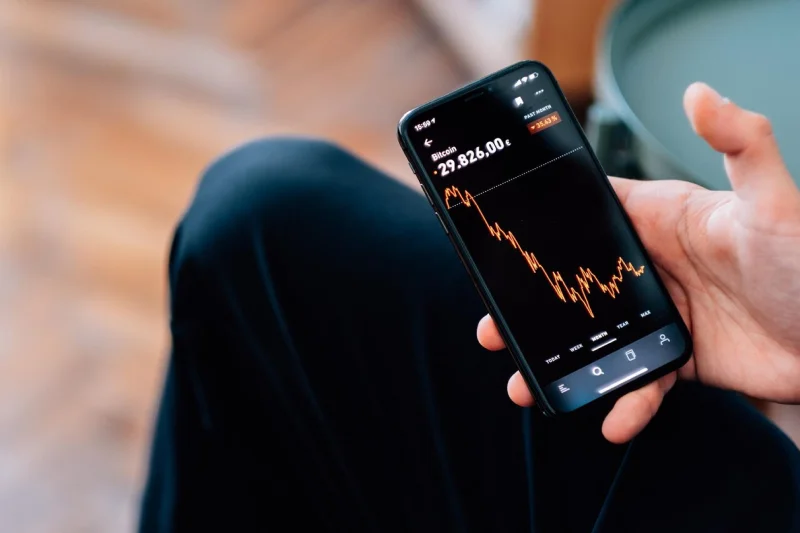
Read more >>> Custodial vs Non-Custodial Wallets: Key Differences Explained
3. How is the crypto wallet development cost calculated?
Figuring out how much does it cost to create a cryptocurrency wallet app can be tricky. To make it easier, let’s look at the three main options entrepreneurs usually choose, along with their estimated costs:
3.1 Crypto wallet website development cost
A crypto wallet website lets users manage their cryptocurrencies online. These websites often have more features, such as:
- Advanced charting and trading tools
- Connections with multiple cryptocurrency exchanges
- Portfolio management dashboards
- Staking and DeFi access
Because they do more, crypto wallet websites usually cost between $7,000 – $10,000 to develop.
3.2 Crypto wallet application development cost
Crypto wallet apps give users a handy way to manage their digital money on their phones. They might have fewer features than websites, but they focus on important things like:
- Sending and receiving cryptocurrencies
- QR code scanning for easy transactions
- Securely storing private keys
- Transaction history and basic portfolio tracking
The estimated cost to develop a crypto wallet app is between $9,000 – $12,000. This is a bit more expensive than websites because you need to build separate apps for iPhones and Android phones, and they need to be easy to use on a small screen.
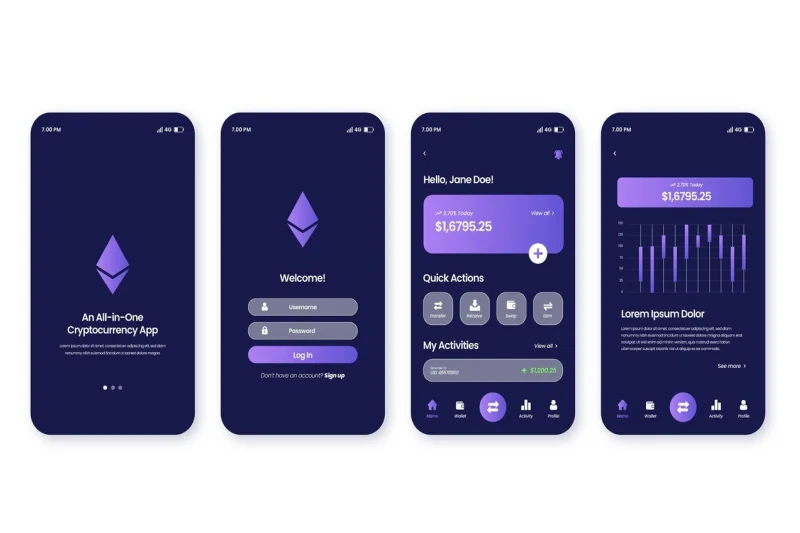
3.3 Hybrid crypto wallet development cost
A hybrid approach combines a website and a mobile app, giving users the best of both worlds. This offers a complete solution with:
- A website with lots of features for managing and trading crypto
- Easy-to-use mobile apps for quick transactions and checking your balance
Developing a hybrid crypto wallet usually costs between $14,000 – $20,000. This might seem pricier at first, but it can be a good value because it attracts more users and offers a better overall experience.
Remember, these are just estimates. The actual crypto wallet development cost can change based on things like the features you want, how complex the design is, and where you get the app developed.
4. How long does it take to create a cryptocurrency wallet app?
Wondering how long does it take to build a blockchain wallet? The timeline for cryptocurrency wallet app development can vary a lot. But here’s a general idea of how long it takes, based on different approaches:
4.1 Developing from scratch
Building a cryptocurrency wallet app from the ground up usually takes about 10-12 months. This includes:
- Planning and design: Figuring out what the app will do, what features it will have, and designing how it will look (2-3 months).
- Development: Writing the code for the app’s features, security features, and the systems that make it work (4-6 months).
- Testing and QA: Making sure the app is stable, secure, and works well (2-3 months).
- Deployment and launch: Getting the app ready to be released on app stores and doing some initial marketing (1-2 months).
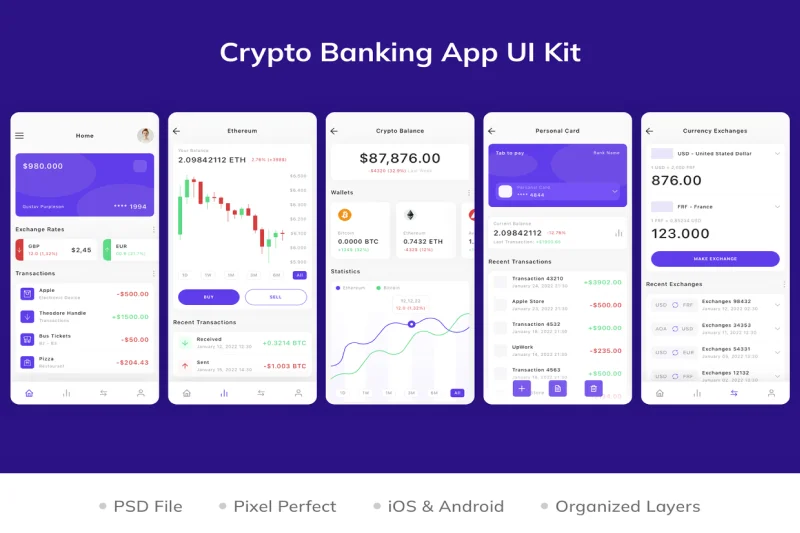
4.2 White-label crypto wallet solution
If you need to launch your app quickly, a white-label crypto wallet solution might be a good option. This is a pre-built app that you can customize with your own branding. These solutions usually include:
- Core wallet functionalities: Basic features like sending and receiving cryptocurrencies, transaction history, and balance displays are already included.
- Security features: Basic security measures like encryption are often built-in.
- Customizable UI: You can change the look of the app to match your brand.
Using a white-label solution can significantly reduce crypto wallet development time, allowing you to launch your app in a week or two. This is great for startups that want to get their app to market quickly.
Which approach is right for you?
Choosing between developing from scratch and using a white-label solution depends on your priorities. If you need lots of custom features or a unique design, developing from scratch gives you more flexibility.
If you need to launch quickly, a white-label solution is the way to go. White-label solutions are usually more affordable for basic wallet functionalities.
5. How to reduce your crypto wallet app development costs
Developing a cryptocurrency wallet app can be expensive, but there are smart ways to optimize your budget and reduce costs without compromising on quality or security. Here are some practical tips:
5.1 Focus on core functionality, avoid overly complex features
Begin with basic features like sending and receiving cryptocurrencies, transaction history, and essential security measures. You can add more advanced features later as your user base and budget grow.
Avoid overly complex features like DeFi integration or advanced trading tools, as these can significantly increase crypto wallet development cost. Decide if these features are really necessary for your initial launch or if they can be added later.
5.2 Choose the right development approach: Cross-platform or white-label solutions
Tools like React Native or Flutter let you build your app for both iOS and Android with a single codebase, saving you time and money compared to developing separate apps for each platform.
If you have a limited budget and need a basic wallet app quickly, white-label solutions can be a good option. You can customize the look and feel of the app while using pre-built features.

5.3 Optimize team structure and location
Consider outsourcing development to regions with lower labor costs, but make sure you have good communication and project management in place.
Hiring remote developers can be cheaper than having an in-house team because you save on office space and other costs.
For specific tasks like design or testing, hiring freelancers can be more affordable than hiring full-time employees.
5.4 Utilize open-source tools and libraries
There are many free and open-source tools available for blockchain and app development, which means you don’t have to build everything from scratch.
Open-source communities offer helpful advice and resources, which can help you solve problems and save time and money.
5.5 Use Agile development and create detailed specifications
This approach focuses on building the app in small steps and getting feedback along the way, which can help you catch problems early and avoid costly rework later.
Clearly define what you want the app to do and how it should work before you start development to avoid misunderstandings and expensive changes later on.
By following these tips, you can effectively reduce the cost to develop a cryptocurrency wallet app while still delivering a high-quality and secure product.
6. The bottom line
Developing a cryptocurrency or cryptocurrency wallet app can be complex and expensive, but it also offers big opportunities in the fast-growing world of digital finance. As we’ve discussed, the costs can vary a lot depending on things like the blockchain platform you choose, the features you want, the security measures you need, the development team you hire, and the ongoing maintenance.
If you’re wondering How much does it cost to create a cryptocurrency wallet app?, this guide has given you a solid foundation to understand the key factors.
If you’re ready to start your crypto journey, remember that knowledge is key. Keep learning, explore different resources, and don’t be afraid to ask for expert advice. If you want personalized guidance and support in making your blockchain vision a reality, contact us today for a consultation. Our team of experienced developers and blockchain specialists is ready to help you navigate the exciting world of cryptocurrency development and build a secure and successful product.



